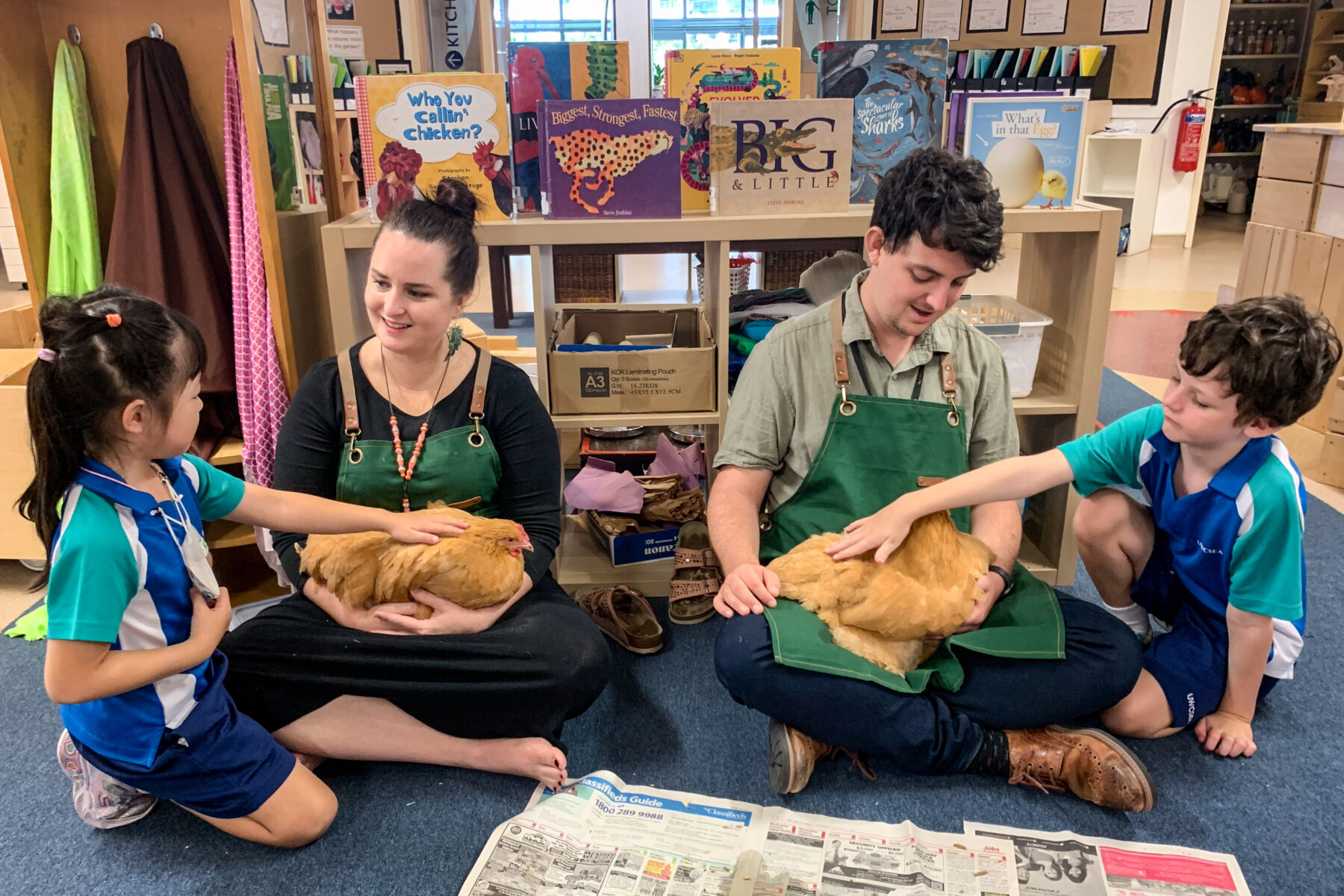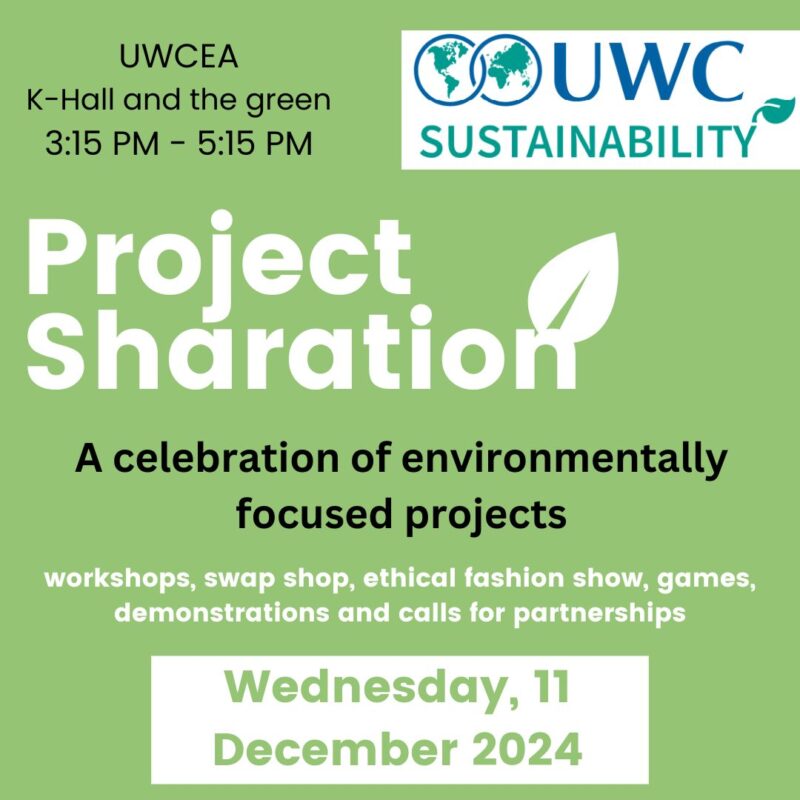
UWCSEA East’s Chicken-based learning!
Details
Chicken-based Learning offers numerous learning opportunities that relate to Sustainable Development Goal 11: Sustainable Cities and Communities, and that engage students around sustainability, urban farming, and permaculture while connecting them to the natural world and animals. By caring for chickens, students can make informed food choices and develop a greater understanding of where their food comes from. Through Chicken-based Learning, we aim to inspire a lifelong passion for environmental stewardship and sustainable living, empowering our students to become agents of change in their own communities and beyond.
Our gentle and easygoing Singaporean Buff Orpington chickens were welcomed on our campus in October 2022. Soon after their arrival, they answered many questions from students who emailed them to ask them anything from “how did you learn how to type” to “what is your favourite vegetable.”
By engaging students across various age groups and interests, we promote environmental stewardship and a deeper understanding of sustainable practices. Students of all ages learn valuable life skills, such as cooperation, responsibility, and problem-solving, as they collaborate to care for the chickens and maintain the permaculture systems in place.
Grade 5 students play a crucial role in the daily care, feeding, and health management of the chickens. They are responsible for ensuring the chickens have access to clean water, food, and a safe and comfortable living environment.
Kindergarten 2 students explore the adaptive features of chickens and learn about the composting benefits they provide. Through this experience, young learners are introduced to the concept of permaculture, which emphasises the importance of closed-loop, sustainable systems.
The Primary School Leaders of Environmental Initiatives oversee the entire program, ensuring that all student interactions are well-coordinated and effective. They lead student sessions and provide opportunities for other students to engage with the chickens, fostering a school-wide culture of environmental responsibility.
High School Urban Gardeners contribute to the program by designing and constructing a customized, moveable chicken tractor. This innovative tool allows the chickens to help dig over the raised garden beds in the Rooftop NEST, providing valuable compost and pest management. This collaboration between the chickens and students showcases the practical applications of permaculture principles in action.
This hands-on approach provides real-world application of Personal, Social, and Emotional (PSE) Curriculum Units that are currently been planned for next year in both the Middle and High School.

